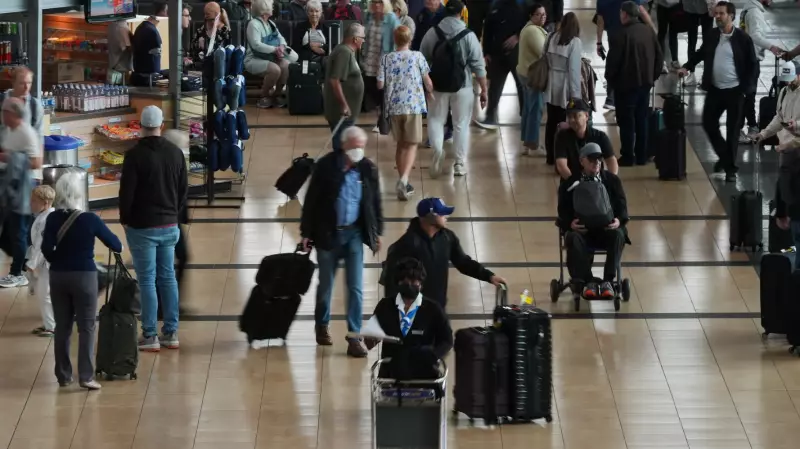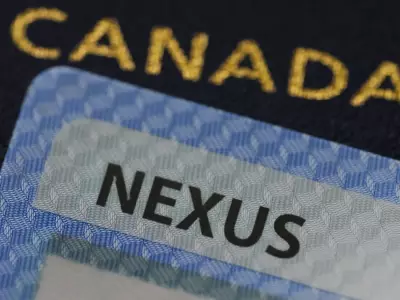
Widespread Flight Disruptions as FAA Enforces Reductions
For the second consecutive day, major U.S. airlines canceled more than 1,000 flights on Saturday, November 8, 2025, following a Federal Aviation Administration order to reduce air traffic. This directive is a direct consequence of the ongoing federal government shutdown, which has now become the longest in the nation's history. While widespread travel chaos has so far been avoided, the flight reductions are intensifying the shutdown's impact on millions of Americans.
Travelers like Emmy Holguin, 36, expressed the shared anxiety of the situation. “We all travel. We all have somewhere to be,” said Holguin, who was flying from Miami to the Dominican Republic. “I’m hoping that the government can take care of this.”
Key Airports and Escalating Cuts
According to data from FlightAware, the disruptions were concentrated at several of the country's busiest hubs. On what is typically a slow travel day, Charlotte Douglas International Airport (CLT) in North Carolina was the hardest hit, with 120 arriving and departing flights canceled by midday. Other major airports experiencing significant disruptions included those in Atlanta, Chicago, Dallas, Denver, and Orlando.
It is important to note that not all cancellations were due to the FAA order, and the numbers still represent a small fraction of total national air traffic. However, the FAA has confirmed that the reductions are set to escalate. The slowdown began by impacting 4% of flights at 40 targeted airports and is scheduled to increase again on Tuesday before reaching 10% of flights by Friday.
Transportation Secretary Sean Duffy has warned that even deeper cuts may be necessary if the shutdown persists and more air traffic controllers are unable to work.
Root Cause: Unpaid Air Traffic Controllers
The core of the problem lies with the nation's air traffic controllers, who have now gone nearly a month without paychecks. This has led to increased sick calls, exacerbating pre-existing staffing shortages. The National Air Traffic Controllers Association has revealed that most controllers are working mandatory overtime six days a week without pay, forcing some to seek second jobs to cover their living expenses.
Despite these challenges, airports like Charlotte have acknowledged the dedication of their TSA and ATC partners, who continue to work under immense pressure.
Passenger Impact and Broader Economic Concerns
So far, most affected passengers have been able to rebook their flights without major issues, and longer international routes have remained largely uninterrupted. However, the uncertainty is taking a toll. Heather Xu, 46, flying home to Puerto Rico from Miami, highlighted the stress. “Travel is stressful enough. Then you put these disruptions in place and it really makes everything more challenging,” she said, noting that not everyone can afford last-minute hotel stays.
The repercussions extend far beyond airport terminals. Analysts warn of a cascading economic effect if the situation continues. Patrick Penfield, a supply chain professor at Syracuse University, explained that nearly half of all U.S. air freight travels in the bellies of passenger planes. Major disruptions could lead to higher shipping costs and subsequently, higher prices for consumers in stores.
Greg Raiff, CEO of Elevate Aviation Group, echoed this concern, stating the shutdown will impact “everything from cargo aircraft to people getting to business meetings to tourists being able to travel.” He warned of losses rippling through tourism, manufacturing, and municipal tax revenues, creating a widespread economic drag as the critical Thanksgiving holiday travel period approaches.






